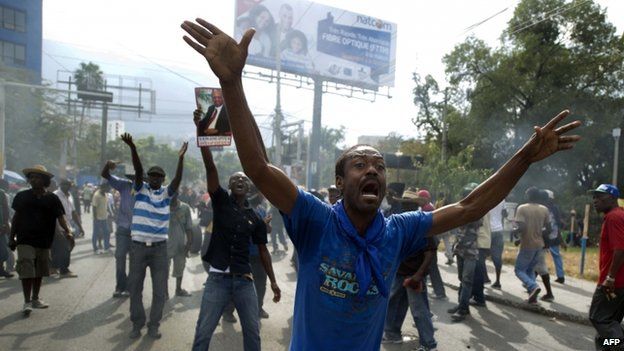Haitian Political Process Moves Forward, Parliament Approves Interim PM
By Jack LaForge
Staff Writer
In the wake of the resignation of Haitian president Michel Martelly, Haiti remains a country devoid of a stable democratic government. In February, Martelly stepped down from his position as head of state with many people dissatisfied due to the belief that Martelly was making “non-democratic” decisions as president.
Al Jazeera reports that Haitian leaders signed an agreement to install a caretaker government as President Michel Martelly stepped down.
With protesters still reeling from the failed presidential elections of 2015, many remain just as vigilant of an abuse of power by the interim president. The first order of business for Interim President Jocelerme Privert is to establish an interim prime minister from now until the twice-postponed presidential runoff vote scheduled for April 24.
However, according to the Jamaica Observer, the Haitian parliament rejected economist Fritz Jean, who was named by Privert to serve as interim prime minister.
On March 26, the Haitian parliament approved the interim president’s second nominee, as reported by the Associated Press. Enex Jean-Charles has since absorbed the duties of appointing a cabinet to run everyday state affairs.
With many Haitians nervous of the current government choosing to abstain from a democratic election process, Jean-Charles said to Reuters, “We can give the guarantee that we won’t do anything to try to remain in power for any longer than necessary.”
According to the New York Times, there are still doubts that the scheduled presidential runoff vote on April 24 can be met. Jean-Charles also stated, “It will be up to the new electoral council, following a technical assessment of what remains to be done, to determine whether the April 24 deadline can be made or not.”
Since the devastating earthquake of 2010, the Haitian people continue to suffer despite $13 billion in humanitarian aid from countries around the world. Cholera outbreaks, a scarcity of clean drinking water, and extreme poverty are several things that a large portion of Haitian citizens have to deal with on a daily basis. The challenges that Haiti faces today are insurmountable without a strong form of government that is elected by and for the people.



